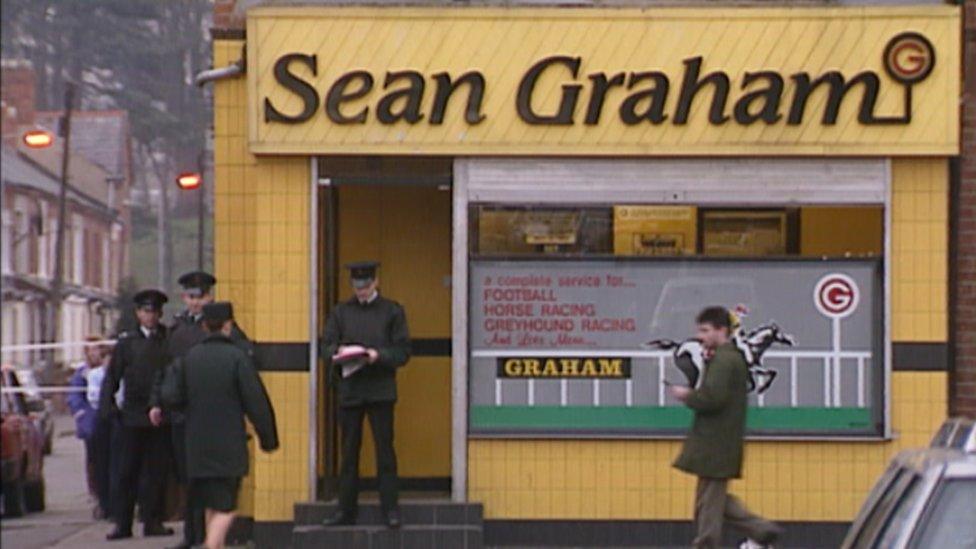Sinn Féin wants outsider to replace PSNI chief constable
- Published
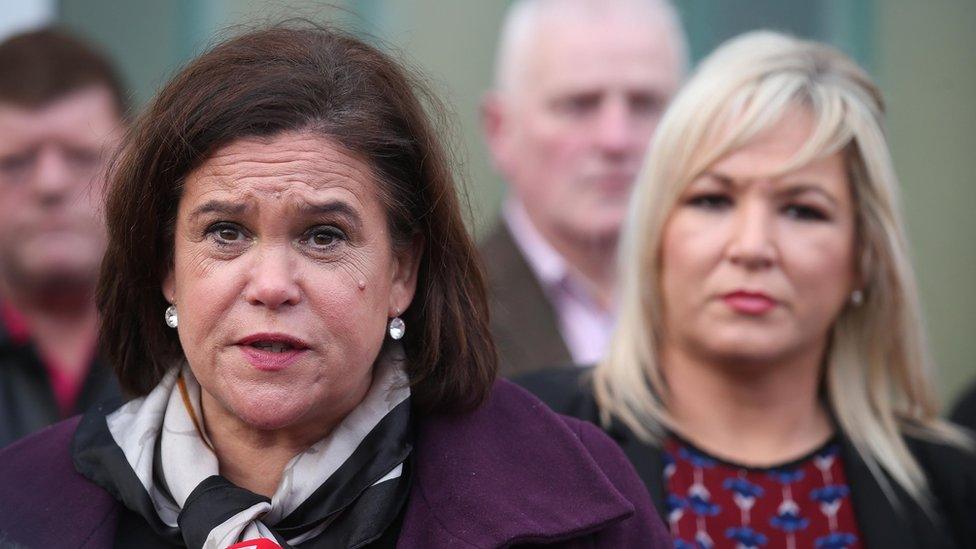
The Sinn Féin president met with senior PSNI officers to discuss the controversy on Monday
Sinn Féin has indicated someone from outside the PSNI should replace George Hamilton as chief constable.
Party president Mary Lou McDonald made the remark after meeting senior officers to discuss the controversy over Police Ombudsman legacy files.
The Police Federation for NI said Ms McDonald's comments were "offensive".
On Thursday the PSNI apologised for failing to reveal "significant information" about a loyalist gun attack that left five people dead.
The force said it never sought to deliberately withhold the information.
No-one has been convicted over the killings.
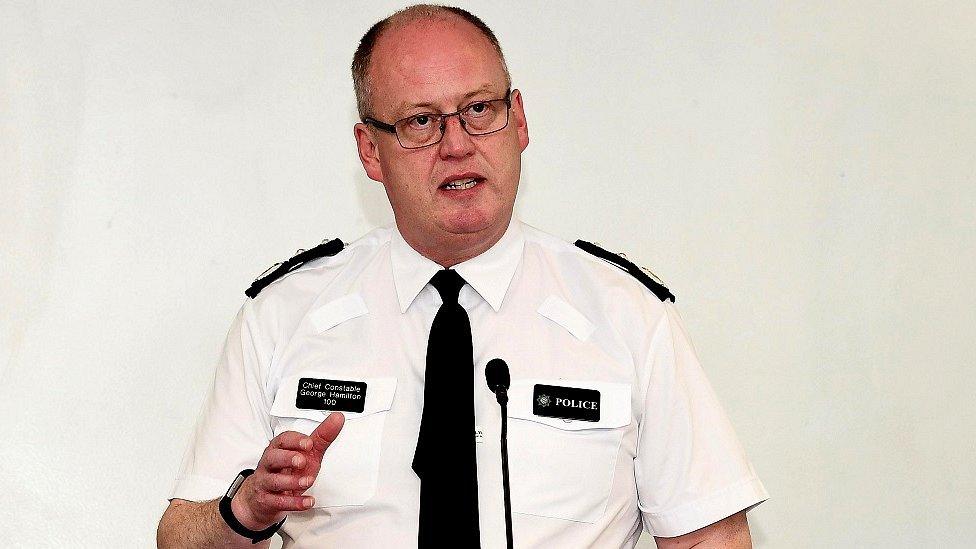
Chief Constable George Hamilton was appointed chief constable in June 2014
Mark Lindsay, chairman of the Police Federation for Northern Ireland, which represents rank and file officers, said Ms McDonald's comments about Mr Hamilton's successor were "wholly inappropriate and offensive".
"This amounts to extraordinary interference in an open and transparent selection process," he said.
"Sinn Féin's representatives on the Northern Ireland Policing Board will have a role to play in deciding on Mr Hamilton's successor, and to adopt this public position now is wholly inappropriate, offensive and ill-judged."
The Democratic Unionist Party, Ulster Unionist Party and Alliance Party all criticised Ms McDonald's remarks.
'Answer honestly'
In January Mr Hamilton announced he would retire later this year after five years as chief constable.
Speaking after meeting with senior PSNI officers, Ms McDonald said: "Is there somebody inside who I think should be the chief constable?
"I have to answer honestly that no, I cannot identify such a person."
The Department of Justice said on Monday that the Northern Ireland Policing Board was "putting in place a process for the appointment of a chief constable" and that it was "important to attract the best candidates from all quarters for this important and challenging role".

Analysis: Controversy behind the scenes
By Mark Simpson, BBC News NI
The new Policing Board is facing its first major challenge only two weeks after its first meeting.
There are few more important tasks than choosing a new chief constable, but already the process has been plunged into controversy.
There are a number serving PSNI officers likely to be considering going for the top job.
The Sinn Féin president has, in effect, indicated she does not believe they are suitable for the job.
Does that mean that any Sinn Féin representative on the interview panel will be mandated to think the same?
It is an issue likely to dominate debate behind the scenes at the policing board.

Mr Hamilton was a serving PSNI officer when he was appointed as chief constable, although he spent a period as assistant chief constable of Strathclyde Police in Scotland.
His predecessor Sir Matt Baggott was an external appointment, joining the PSNI from Leicestershire Police.
Sir Hugh Orde, the first permanent chief constable of the PSNI, was also appointed from outside the force, from the Metropolitan Police.
'Should resign'
The PSNI was accused of a "cover up" after failing to reveal "significant information" about the gun attack at Sean Graham's bookies in south Belfast in 1992, which was carried out by the Ulster Freedom Fighters (UFF).
Mr Hamilton faced a call to resign from the son of one of the victims of the attack.
"They're saying he's retiring and he wants to retire - he should resign," said Billy McManus.
"He's led us up a garden path. He knew, the PSNI knew these files were here, they just hid them, from the Police Ombudsman."
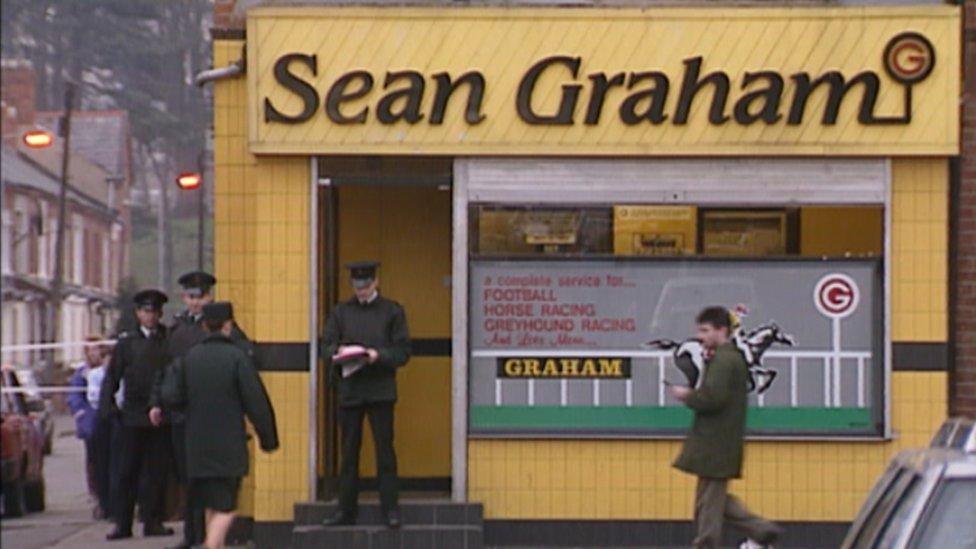
The attack in February 1992 was carried out by the Ulster Freedom Fighters
The Police Ombudsman has opened new inquiry lines after finding out about more material linked to the attack.
It said that the problem had arisen due to issues including human error, "the sheer volume of the material involved and the limitations of the archaic IT systems".
The families of the victims have previously said they believe there was collusion between the killers and security forces in the betting shop shootings.
The material has led the Police Ombudsman to examine new lines of inquiry into the Ormeau shootings, events connected to loyalist paramilitaries in the north west of Northern Ireland between 1988 and 1994 and the murder of teenager Damien Walsh at a coal depot in west Belfast in 1993.
Police Ombudsman reports into those investigations will now be delayed.
- Published28 January 2019
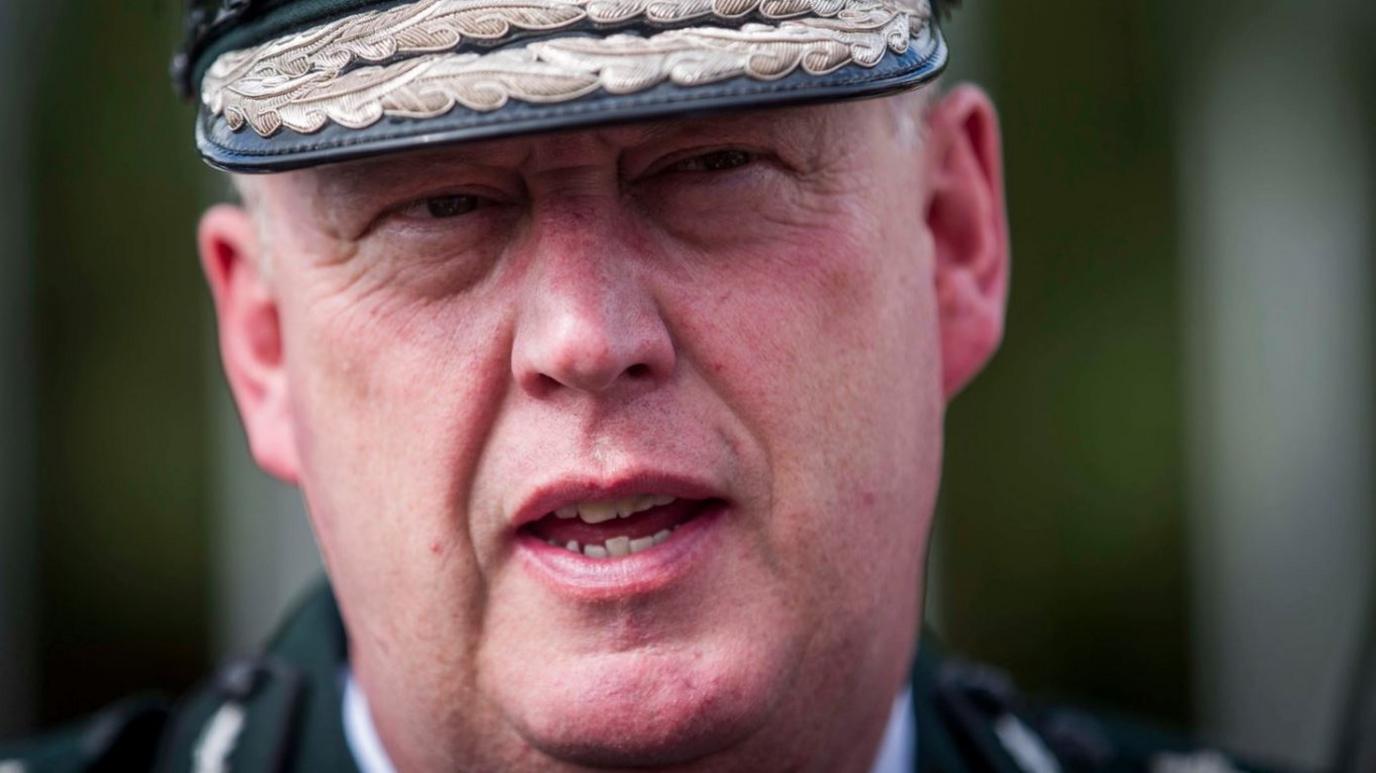
- Published14 February 2019
